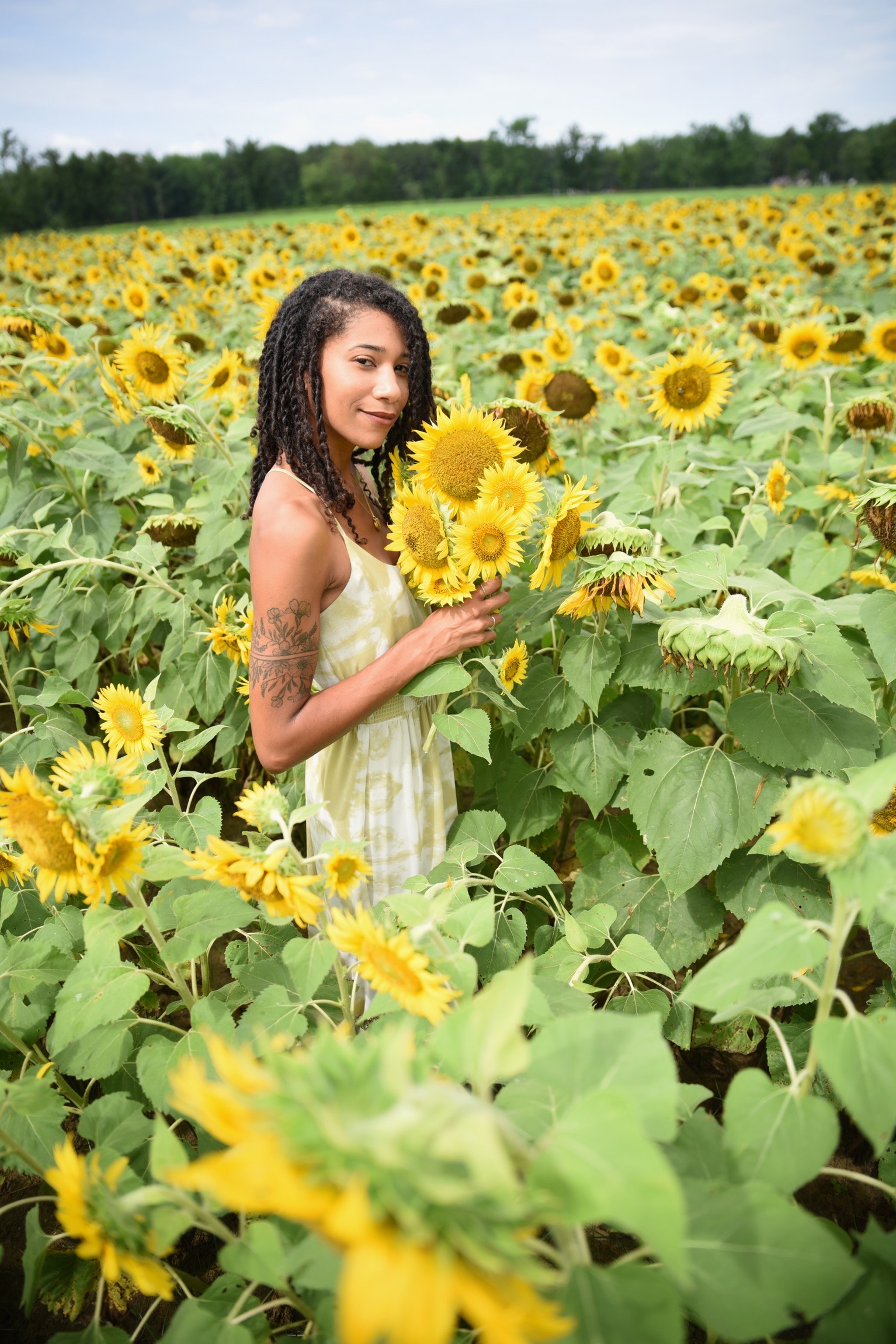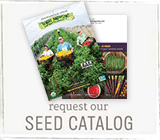2023 Catalog - The Future: Let's Plan(t) It Part 2
Return to part 1 of our 2023 catalog series- The Future: Let's Plan(t) It




Amber Paige
Home Gardener in Wilmington, North Carolina Amber Paige is a gardener in Wilmington, North Carolina and the creator of Black Girls Gardening, an online gardening community of Black women who have found joy and nourishment from growing their own food. When Amber started Black Girls Gardening in 2019, she found that it was difficult to find representation in online gardening spaces. As a believer that gardening is an excellent form of self-care, she feels it is essential that Black women are supported and encouraged to have experiences growing their own food and taking time in natural spaces to breathe, cultivate inner peace and heal. The journey of gardening is a path of learning. Throughout her time in her greenhouse and harvesting from her densely planted beds, she’s learned the importance of having a plan. “When I first started gardening I would just plant things wherever, with whatever. Now I always plan ahead. I research what I want to plant, when I want to plant it and what goes best with it. It saves time in the long run with preventing pests, growing healthy plants and building soil quality.” And what to plant in that bed? We all have our favorites. Amber has a few crops that make the growing list every year. “Some of my favorite things to grow are cucamelons, cucumbers, chocolate cherry tomatoes, banana peppers and zinnia flowers.” While the garden offers much in the way of calories, flavors, and abundance, it also has many gifts for the soul. “The garden can teach us about; especially things like responsibility the responsibility of taking care of something from beginning to end and figuring out what it needs to survive. Also, there’s growth, and how it takes time. How certain things do not grow at the same rate as others. There are so many lessons that we can take from gardening that can be applied to our everyday life.” The practical skills and knowledge that Amber has gleaned from her experience working with plants combined with her passion for supporting wild spaces make her very aware of the current threats posed by climate change. “Climate change has already impacted so much of the agricultural industry to the point where I’ve noticed more people turning to home gardening. I think as more people realize the changes that have been happening, such as rising costs at the grocery store and risks of chemicals being used on food, more people will move to becoming self-sufficient in general. Being mindful of water consumption, recycling, and creating compost have always been practices of mine. Showing others that they can grow food in their own space, big or small, and change the way they eat (it tastes better when you grow it yourself!) were some of my goals when creating Black Girls Gardening.”
Chef Terry Koval
The Deer and The Dove Restaurant in Atlanta, GA Chef Terry Koval has received many accolades for his cooking throughout his 20+ years designing menus and creating some of Atlanta’s most delicious food, has appeared on TV shows and even competed on the reality show Chopped in 2013. What he is most known for by the local community he serves, however, is his dedication to local farmers. Currently, Terry is the head chef and owner of a farm to table restaurant, The Deer and The Dove, and accompanying coffee shop called B-Side, a dream he shared and fulfilled with his wife Jenn when they opened in June of 2019. Here he holds the title of Farmer Champion by the state-wide organic non-profit, Georgia Organics. This title is given to a restaurant that purchases at least 5% of their food from local and organic producers. Georgia Organic states, “Farmer Champions demonstrate a commitment to Georgia producers and serve as an example to other chefs and restaurants that sourcing locally is possible.” Sourcing from local producers has been a part of his work since as early as 2001. “I had always been around food from local farms, gardens and markets growing up. But as for sourcing from farms, it began at Canoe Restaurant in 2001. It was very eye opening for me as a young chef to see this beautiful product come into a restaurant from folks who grew it. It really expanded and became more of a passion when I joined the Farm Burger team in 2010. I was introduced to a network of local emerging farmers and from there I have met some incredible people that have a sincere passion for growing good food.” While working with an ever-changing, seasonal menu can require some flexibility and patience, it also has benefits. “We plan our menu based on what is coming out of the ground, week by week, as well as what proteins are being harvested by our local farmers, ranchers and fisheries. When working with local farmers, you can communicate about the timing of harvests, which can give you the opportunity to control the size of the vegetables. Plus, there is nothing more gratifying than having the person who is growing your food come into your kitchen and have a conversation. It is so special to build these relationships and important to strengthen the food community.” When he’s not at the restaurant cooking or creating menus on the fly, Terry is at the farmers market or tending his own garden at home. He enjoys cooking with his wife and children and has this advice for all burnt out home cooks, “When cooking at home, try to feel inspired by the hard work and passion in the food that you are preparing. Wrap your herbs and lettuce in a paper towel in an airtight container. Don't throw away your tops, make pesto’s or dried herb salts. I personally really love to cook root vegetables like beets, carrots, turnips and hardy, heading crops like cauliflower. These are ideal slowly roasted over embers, seasoned with olive oil, sea salt and fresh cracked black pepper.” Through Terry’s dedication to farmers, nutritious, high-quality food and to his loyal customers in Atlanta and beyond, he was able to get through the toughest times presented by the lockdowns of the pandemic. While the road ahead is still somewhat uncertain, we can only assume the best is yet to come for this hardworking visionary. His passion runs deep and his inspiration sprouts from many sources. “There have been a lot of good folks that have inspired me throughout my culinary journey. Young emerging farmers, dishwashers, line cooks, chefs, community, family, and friends. But it comes back to the food. The food that is available and coming out of the ground fresh every week keeps me inspired, season after season.”


